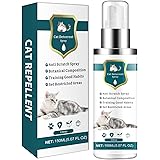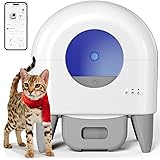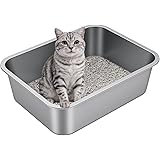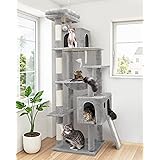
Regular veterinary visits are essential for the health and well-being of our feline friends. Cats are known for their independent nature, but they still require regular check-ups and preventive care to ensure they live long, healthy lives. These visits not only help to prevent diseases and detect health issues early on, but they also provide an opportunity for veterinarians to address any concerns or questions that cat owners may have.
Preventive care is crucial for feline health and longevity. By taking a proactive approach to their healthcare, we can help prevent diseases and catch any potential issues before they become serious. Regular veterinary visits allow for early detection and treatment, which can significantly improve the outcome for our cats.
Key Takeaways
- Regular cat veterinary visits are valuable for maintaining your cat’s health and well-being.
- Preventive care is key to ensuring your cat’s longevity and avoiding serious health issues.
- Early detection of health issues can help prevent them from becoming more serious.
- Vaccinations protect your cat from preventable diseases and should be kept up-to-date.
- Dental care, nutrition, parasite prevention, behavior management, and senior cat care are all important aspects of feline health that should be addressed during regular veterinary visits.
Preventive Care: The Key to Feline Health and Longevity
Regular check-ups and physical exams are the foundation of preventive care for cats. During these visits, veterinarians will thoroughly examine your cat, checking their overall health, weight, coat condition, and more. They will also listen to their heart and lungs, check their teeth and gums, and assess their mobility. These exams can help identify any potential health issues or concerns.
In addition to physical exams, blood work and diagnostic testing are essential components of preventive care. Blood work can provide valuable information about your cat’s organ function, blood cell counts, and overall health. Diagnostic testing, such as urinalysis or imaging studies, can help identify any underlying conditions that may not be apparent during a physical exam.
Preventive medications and treatments are also important in maintaining feline health. This may include vaccinations to protect against common diseases, parasite prevention medications to keep fleas, ticks, and worms at bay, as well as dental cleanings to maintain oral health. These preventive measures can significantly reduce the risk of illness and improve your cat’s quality of life.
Early Detection: Identifying Health Issues Before They Become Serious
Early detection is crucial when it comes to treating health issues in cats. Many diseases and conditions can be more effectively managed or even cured when caught early. Regular veterinary visits allow for the early identification of potential health problems, giving veterinarians the opportunity to intervene before they become serious.
There are several common health issues that cats may face, including urinary tract infections, kidney disease, diabetes, hyperthyroidism, and dental problems. Being aware of the symptoms associated with these conditions can help cat owners recognize when something may be wrong. Symptoms may include changes in appetite or water intake, weight loss or gain, lethargy, vomiting, diarrhea, changes in litter box habits, or difficulty urinating.
Diagnostic tools and tests play a crucial role in early detection. Blood work can help identify abnormalities in organ function or blood cell counts. Urinalysis can provide information about kidney function and the presence of urinary tract infections. Imaging studies, such as X-rays or ultrasounds, can help visualize internal organs and identify any abnormalities. By utilizing these diagnostic tools, veterinarians can catch potential health issues early on and develop an appropriate treatment plan.
Vaccinations: Protecting Your Cat from Preventable Diseases
| Vaccine | Disease | Recommended Age | Frequency |
|---|---|---|---|
| FVRCP | Rhinotracheitis, Calicivirus, Panleukopenia | 6-8 weeks | Every 3-4 weeks until 16 weeks, then annually |
| Rabies | Rabies | 12-16 weeks | Annually or every 3 years depending on vaccine type |
| Feline Leukemia | Feline Leukemia Virus | 8-12 weeks | Every 2-4 weeks until 16 weeks, then annually for high-risk cats |
Vaccinations are an essential part of preventive care for cats. They protect against a range of preventable diseases that can be potentially life-threatening. Vaccinations work by stimulating the immune system to produce antibodies against specific diseases, providing protection if your cat is exposed to them in the future.
Common vaccines for cats include those for rabies, feline viral rhinotracheitis (herpesvirus), calicivirus, and panleukopenia (distemper). The vaccination schedule will depend on your cat’s age, lifestyle, and risk factors. Kittens typically receive a series of vaccinations starting at around 8 weeks of age and continuing until they are around 16 weeks old. Adult cats will require booster shots to maintain their immunity.
It is important to note that while vaccinations are generally safe and effective, there can be risks associated with them. Some cats may experience mild side effects, such as soreness at the injection site or a slight fever. In rare cases, more severe reactions can occur. It is essential to discuss any concerns or questions you may have with your veterinarian to ensure you are making an informed decision about vaccinations for your cat.
Dental Care: Maintaining Your Cat’s Oral Health
Dental care is often overlooked but is crucial for maintaining your cat’s overall health. Dental problems can lead to pain, difficulty eating, and even systemic infections if left untreated. Regular dental cleanings and treatments can help prevent these issues and keep your cat’s teeth and gums healthy.
Signs of dental problems in cats may include bad breath, difficulty eating or chewing, drooling, pawing at the mouth, or swollen gums. If you notice any of these signs, it is important to have your cat’s teeth examined by a veterinarian.
Dental cleaning involves the removal of plaque and tartar buildup from your cat’s teeth. This is typically done under anesthesia to ensure a thorough cleaning and to keep your cat comfortable during the procedure. In some cases, extractions may be necessary if there are severely damaged or infected teeth.
In addition to professional dental cleanings, there are also at-home dental care options available for cats. These may include brushing your cat’s teeth with a pet-safe toothpaste, providing dental treats or toys designed to promote oral health, or using water additives that help reduce plaque and tartar buildup.
Nutrition: Ensuring Your Cat’s Diet Meets Their Unique Needs

Proper nutrition is essential for feline health and well-being. Cats have unique dietary requirements that must be met to ensure they receive all the necessary nutrients for optimal health. A balanced diet can help prevent obesity, maintain a healthy weight, support a strong immune system, and promote overall vitality.
Cats are obligate carnivores, which means they require a diet that is high in animal protein. They also have specific needs for certain vitamins, minerals, and fatty acids. It is important to choose a cat food that is specifically formulated to meet these nutritional requirements.
When selecting a cat food, consider factors such as your cat’s age, activity level, and any specific health concerns they may have. Kittens, adult cats, and senior cats all have different nutritional needs. It is also important to choose a high-quality cat food that uses real meat as the primary ingredient and does not contain excessive fillers or artificial additives.
It is always a good idea to consult with your veterinarian before making any changes to your cat’s diet. They can provide guidance on the best food options for your cat’s specific needs and help ensure they are receiving the proper nutrition.
Parasite Prevention: Keeping Your Cat Safe from Fleas, Ticks, and Worms
Parasites can pose a significant risk to your cat’s health. Fleas, ticks, and worms can cause a range of issues, from skin irritations to more serious diseases. Preventive medications and treatments are essential in keeping your cat safe from these parasites.
Fleas are common external parasites that can cause itching, skin allergies, and even transmit diseases. Ticks can also transmit diseases such as Lyme disease or Ehrlichiosis. Regular use of flea and tick preventives can help protect your cat from these pests.
Internal parasites, such as worms, can also be a concern for cats. Common types of worms include roundworms, hookworms, tapeworms, and heartworms. These parasites can cause gastrointestinal issues and other health problems. Regular deworming medications can help prevent infestations and keep your cat healthy.
Signs of parasite infestation in cats may include excessive scratching, hair loss, weight loss, diarrhea, or the presence of worms in the stool. If you notice any of these signs, it is important to consult with your veterinarian for appropriate treatment.
Behavior Issues: Addressing and Managing Common Feline Behavioral Problems
Behavior issues can be a source of frustration for cat owners. Understanding the common causes of these problems and implementing appropriate management techniques can help improve your cat’s behavior and strengthen the bond between you and your feline friend.
Common behavior issues in cats may include litter box problems, aggression, excessive meowing, destructive scratching, or anxiety-related behaviors. These issues can be caused by a variety of factors, including stress, medical conditions, or environmental changes.
Behavioral modification techniques can be effective in addressing these issues. This may include providing environmental enrichment, such as interactive toys or scratching posts, to keep your cat mentally stimulated. Positive reinforcement training can also be used to encourage desired behaviors and discourage unwanted ones.
In some cases, medications or treatments may be necessary to manage behavior issues. Your veterinarian can provide guidance on the best approach for your cat’s specific needs and help develop a behavior management plan.
Senior Cat Care: Special Considerations for Aging Cats
As cats age, they may require additional care and attention to maintain their health and well-being. Senior cats are more prone to certain health issues, such as arthritis, kidney disease, dental problems, or cognitive decline. Regular veterinary visits and preventive care are especially important for senior cats.
Common health issues in senior cats may include weight loss or gain, changes in appetite or water intake, decreased mobility, increased vocalization, or changes in litter box habits. It is important to monitor your senior cat closely for any changes in behavior or health and seek veterinary care if needed.
Senior cat preventive care may include more frequent check-ups and blood work to monitor organ function and detect any potential issues. Your veterinarian may also recommend dietary changes or supplements to support your cat’s specific needs. Pain management for conditions such as arthritis may also be necessary to improve your cat’s quality of life.
Quality of life considerations are crucial for senior cats. As they age, their needs and abilities may change. Providing a comfortable and safe environment, with easy access to food, water, litter boxes, and resting areas, can help ensure their well-being. Regular interaction and mental stimulation are also important for senior cats.
Making Regular Veterinary Visits a Priority for Your Feline Friend’s Health and Well-being
Regular veterinary visits are essential for the health and well-being of our feline friends. By prioritizing preventive care, early detection, and addressing any health concerns or behavior issues, we can help ensure our cats live long, healthy lives.
The benefits of regular veterinary visits are numerous. Preventive care can help prevent diseases, catch potential health issues early on, and improve the outcome for our cats. Vaccinations protect against preventable diseases, dental care maintains oral health, proper nutrition supports overall well-being, and parasite prevention keeps cats safe from fleas, ticks, and worms.
Addressing behavior issues and providing special care for senior cats are also important considerations in maintaining feline health and quality of life. By making regular veterinary visits a priority, we can provide the best possible care for our feline friends and ensure they live happy and healthy lives.
FAQs
What is cat veterinary?
Cat veterinary refers to the medical care and treatment of cats by licensed veterinarians. It includes preventive care, diagnosis, and treatment of illnesses and injuries.
What are some common cat health problems?
Some common cat health problems include dental disease, obesity, urinary tract infections, ear infections, and skin allergies. Regular check-ups with a veterinarian can help prevent and treat these issues.
How often should I take my cat to the vet?
Cats should have a check-up with a veterinarian at least once a year. Senior cats or cats with chronic health conditions may need more frequent visits.
What vaccinations do cats need?
Cats should receive core vaccinations for feline panleukopenia, feline calicivirus, and feline herpesvirus. Depending on their lifestyle and risk factors, they may also need non-core vaccinations for diseases such as feline leukemia and rabies.
How can I keep my cat healthy?
You can keep your cat healthy by providing a balanced diet, regular exercise, and a clean living environment. Regular check-ups with a veterinarian and keeping up with vaccinations can also help prevent health problems.









